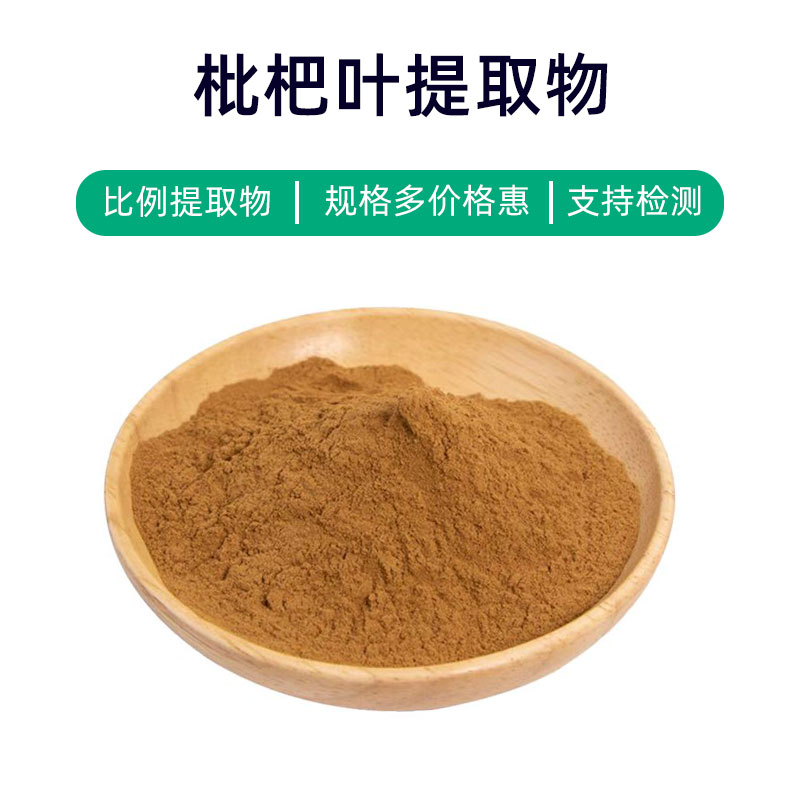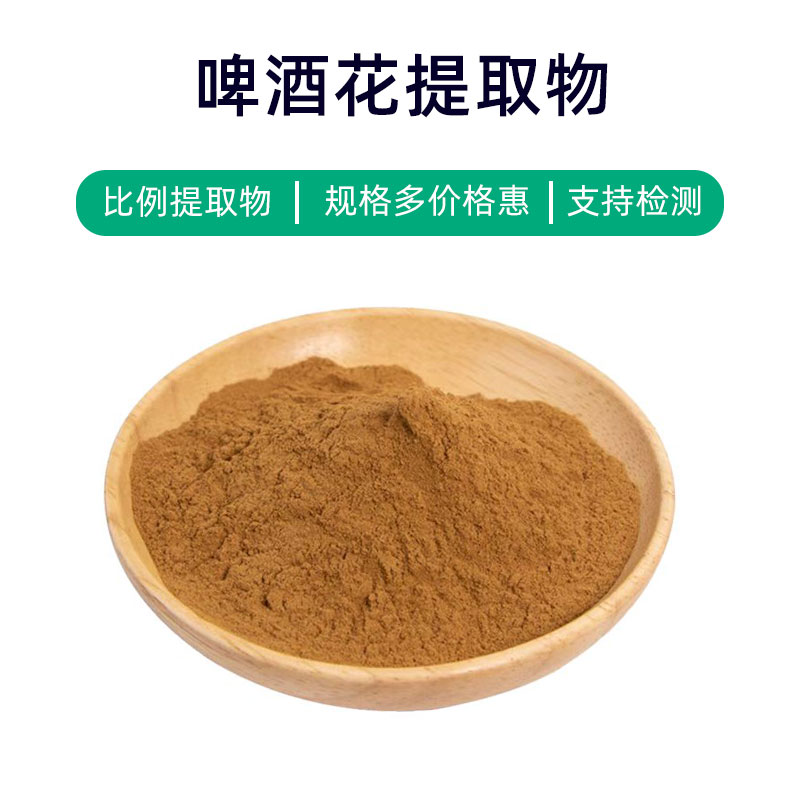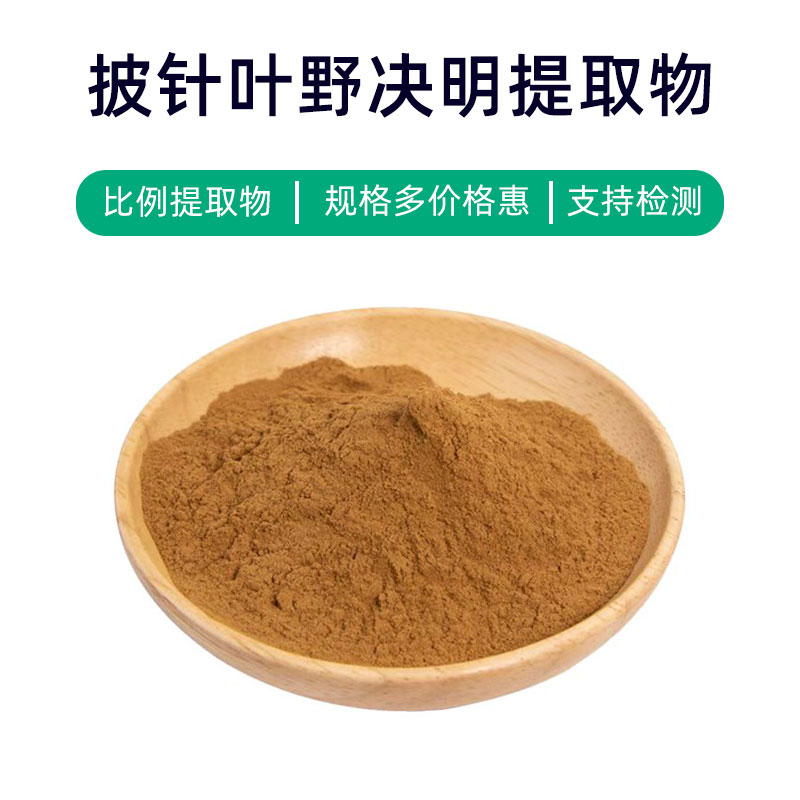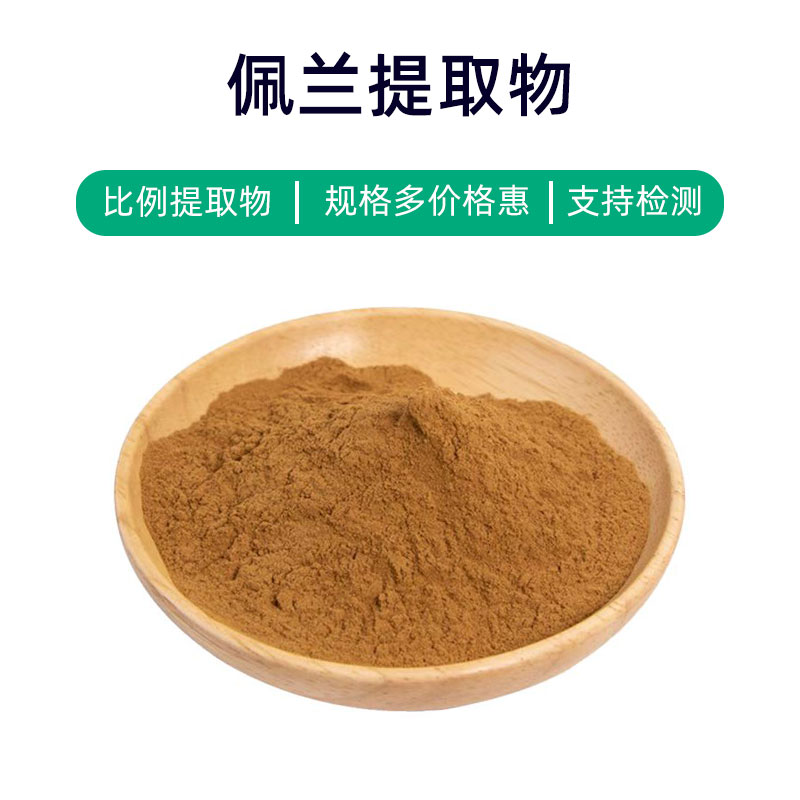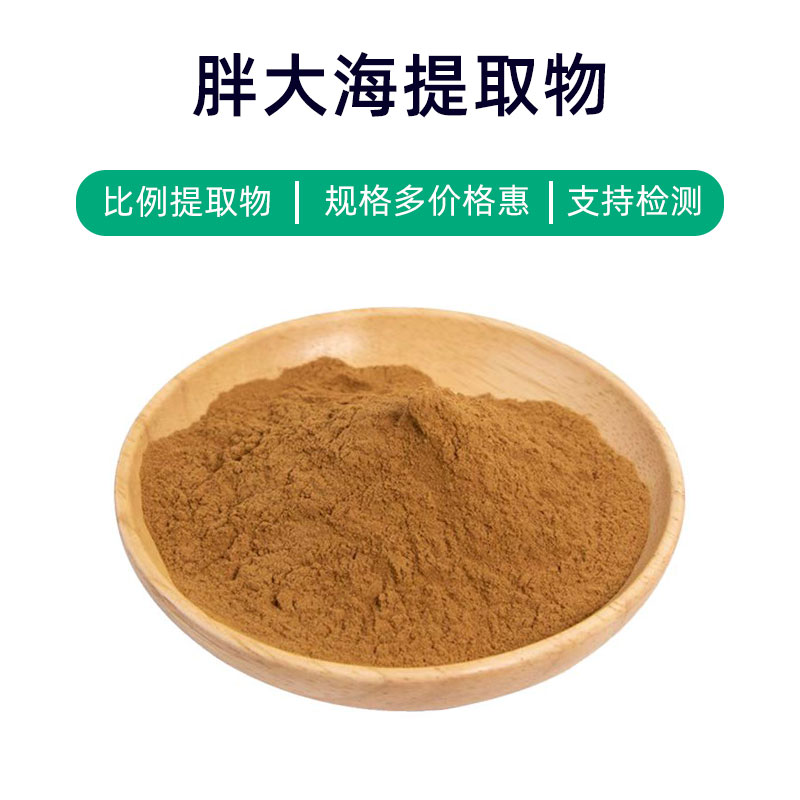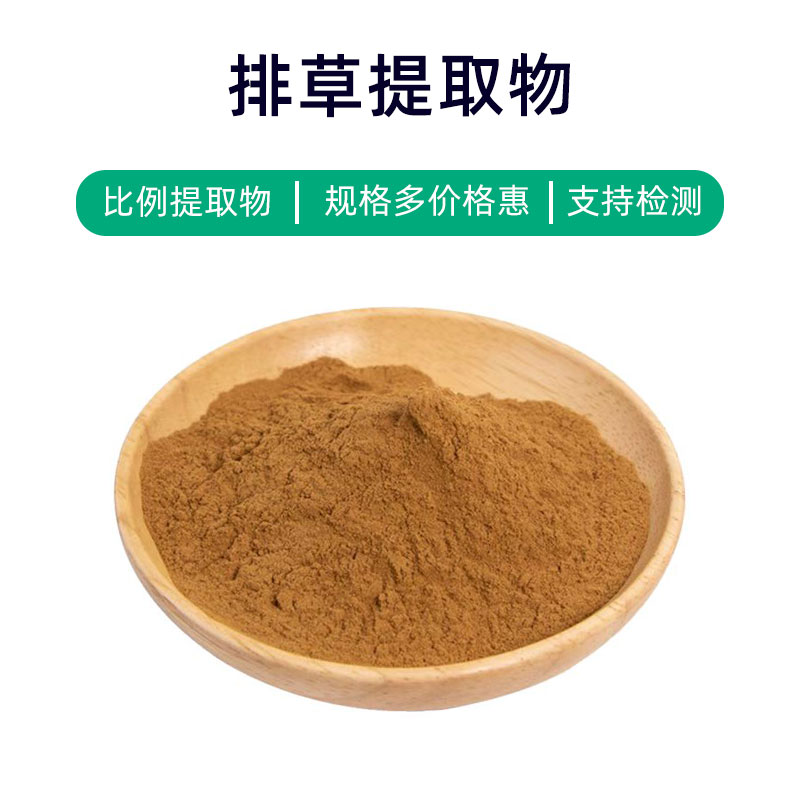Product Introduction for Black Pepper Extract
Black Pepper Extract is a plant extract obtained from the fruit of the pepper plant. Its main components include piperine, essential oils, and various phenolic compounds. Piperine is the primary active ingredient in Black Pepper Extract, known for its multiple bioactive properties.
This extract is frequently used in food, dietary supplements, pharmaceuticals, and cosmetics. In the food industry, it serves as a flavoring agent, imparting a unique aroma and flavor to food while enhancing its taste. In dietary supplements, Black Pepper Extract is believed to promote digestion, enhance nutrient absorption, and boost metabolism, often utilized in various health products and nutritional supplements. Additionally, it is widely used in pharmaceuticals and cosmetics to improve drug absorption, enhance efficacy, or serve as an antioxidant and skincare ingredient.
Overall, Black Pepper Extract boasts rich nutritional components and numerous bioactive properties, making it widely applied in food, dietary supplements, pharmaceuticals, and cosmetics, thus adding distinct flavor, enhancing effects, and improving market competitiveness.
Production Process for Black Pepper Extract
The production process for Black Pepper Extract typically includes the following steps:
- Raw Material Collection: First, mature pepper fruits are collected as raw materials, usually selecting those that have turned deep black but are not yet fully ripe.
- Preprocessing: The collected pepper fruits are preprocessed to remove the outer shell and then chopped or ground into a powder.
- Extraction: The processed pepper powder is soaked or boiled with an appropriate solvent (such as ethanol or water) to extract the active ingredients.
- Filtration and Concentration: The extract is filtered to remove impurities, then concentrated through evaporation to remove excess solvent, yielding a concentrated extract.
- Drying: The concentrated extract is dried, typically using spray drying or vacuum drying methods, to remove moisture and produce a powdered form of Black Pepper Extract.
- Refining: The dried extract undergoes further refinement to enhance product purity and activity.
- Packaging: Finally, the refined Black Pepper Extract is packaged, usually in airtight containers, to maintain freshness and stability.
The entire production process requires strict control of various parameters to ensure consistent product quality and effective extraction of active ingredients. Additionally, relevant production standards and regulations must be followed to ensure compliance with food, pharmaceutical, or cosmetic industry requirements.
Effects and Side Effects of Black Pepper Extract
As a plant extract, Black Pepper Extract has a wide range of applications in medicine, food, and cosmetics, offering numerous benefits and effects.
- Promotes Digestion: Rich in piperine, it stimulates gastric secretion, enhances gastrointestinal motility, and aids food digestion, improving issues like indigestion and gastroesophageal reflux.
- Enhances Absorption: Piperine in Black Pepper Extract increases the intestinal absorption rate of nutrients, especially fat-soluble vitamins (like vitamins A and E) and some medications, helping to improve their bioavailability.
- Antioxidant Properties: The extract is high in various antioxidants, which help to neutralize free radicals, slow down aging, and maintain cell health.
- Anti-inflammatory Effects: Some components in Black Pepper Extract have shown anti-inflammatory properties that can reduce inflammation, alleviating symptoms associated with arthritis, muscle pain, and other inflammatory conditions.
- Antimicrobial and Anti-inflammatory: The extract contains essential oils and piperine, exhibiting antimicrobial and anti-inflammatory effects which can inhibit the growth of bacteria, fungi, and viruses, helping to prevent infectious diseases.
- Increases Metabolism: Piperine in the extract may enhance metabolism and promote fat oxidation, assisting in weight reduction and control.
- Boosts Immunity: Black Pepper Extract helps regulate immune system functions, enhancing the body’s immunity and reducing infection risk.
Despite its various benefits, care should be taken regarding potential side effects, including allergic reactions, digestive discomfort, and gastrointestinal issues. It is advisable to consult a doctor or professional before use to avoid adverse reactions. Certain populations, such as pregnant women, nursing mothers, children, and the elderly, should exercise caution to avoid discomfort or adverse effects.
Application Scenarios and Dosage of Black Pepper Extract
Black Pepper Extract has a broad range of applications in the medical, food, and cosmetic industries. The following highlights its uses along with recommended dosages.
Medical Applications:
- Digestive Disorders: Frequently used to treat indigestion, heartburn, and gastroesophageal reflux. Typical oral dosage is 50-100 mg per time, taken 1-3 times daily as needed.
- Arthritis and Muscle Pain: With anti-inflammatory and pain-relief properties, it's used to alleviate arthritis and muscle pain. Common topical application includes massage oils or ointments, applied to affected areas 2-3 times daily.
Food Applications:
- Flavoring Agent: A popular natural seasoning for a variety of foods, such as meats, soups, and sauces. Recommended dosage is 0.5-2 grams per 100 grams of food, which can be adjusted according to taste.
- Dietary Supplements: Often added to supplements for enhancing digestive function and nutrient absorption. Typical oral dosage is 50-100 mg daily, adjustable based on needs.
Cosmetic Applications:
- Skincare Products: Known for its antioxidant and anti-inflammatory properties, it's often included in skincare products to reduce skin oxidation and inflammation. A common method of application is to apply a small amount of skincare product to clean skin twice a day.
- Hair Care: Black Pepper Extract can also be included in hair care products like shampoos and masks, helping to promote scalp blood circulation and reduce dandruff. Typical usage involves applying an adequate amount of shampoo or mask to the hair, massaging the scalp, then rinsing.
In summary, Black Pepper Extract holds significant value in medicine, food, and cosmetics. When using it, one should choose the appropriate dosage based on individual circumstances and adhere to the relevant product instructions and professional advice to ensure safe and effective use.
Plant Source, Distribution, and Growth Environment of Black Pepper Extract
Black Pepper (scientific name: Piper nigrum) is a well-known spice plant and the primary source for Black Pepper Extract. Below is an introduction to the plant characteristics, distribution, and growth environment of Black Pepper.
Plant Characteristics:
Black Pepper is a perennial climbing plant belonging to the Piperaceae family, primarily found in tropical and subtropical regions. Its characteristics include:
- Stems: The stems are vine-like and capable of climbing, typically reaching heights of around 10 meters.
- Leaves: The leaves are heart-shaped or oval, arranged oppositely, with a leathery texture.
- Flowers: The small, dense flowers are in spike inflorescences, with fleshy flower axes at the ends.
- Fruits: Its fruit is a drupe that turns red or black when ripe, containing multiple seeds.
Distribution:
Originally native to the Western Ghats of India, Black Pepper is now widely cultivated in tropical areas such as Southeast Asia, South Asia, the Indochinese Peninsula, and southern China. Major producing countries include India, Indonesia, Vietnam, Brazil, and Malaysia.
Growth Environment:
Black Pepper thrives in a warm, humid climate with nutrient-rich soil. The ideal growth temperature ranges from 20 to 30 degrees Celsius, with annual rainfall between 1500 and 2500 millimeters. It typically grows in mountainous or hilly areas at altitudes of 200 to 1200 meters and can also be cultivated in plains.
Black Pepper requires ample sunlight and well-drained conditions but can also adapt to semi-shaded environments. Cultivation often involves providing support for climbing, timely pruning, and management to promote the growth of stems, leaves, and fruits.
In summary, Black Pepper is a tropical plant that flourishes in warm, humid conditions, with its fruits being utilized for producing Black Pepper Extract, which has significant economic and medicinal value.
Processing and Storage of Black Pepper Extract
The processing of Black Pepper Extract primarily involves the following steps: First, the harvested black pepper fruits are washed and dried to remove surface impurities and moisture; next, they are ground and crushed into powder or fragments; then, effective components are extracted using solvent extraction or supercritical fluid extraction methods; finally, the resulting liquid is concentrated, filtered, and dried to obtain the finished Black Pepper Extract.
For storage, Black Pepper Extract should be kept in a cool, dry, and ventilated place, shielded from direct sunlight and moist environments to prevent clumping from moisture absorption. It must also be protected from oxygen, light, and high temperatures to maintain its quality and active components. Sealed packaging is recommended, and regular checks of appearance and quality should be conducted during storage to ensure product stability and safety.
Monica Sun is a seasoned expert in the plant extraction industry with over a decade of experience in research and production. She specializes in the extraction and purification of plant active ingredients, focusing on driving innovation in natural product applications. Monica has participated in the development of multiple functional plant extracts, delivering high-value natural raw material solutions for the health food, pharmaceutical, and dietary supplement sectors.









